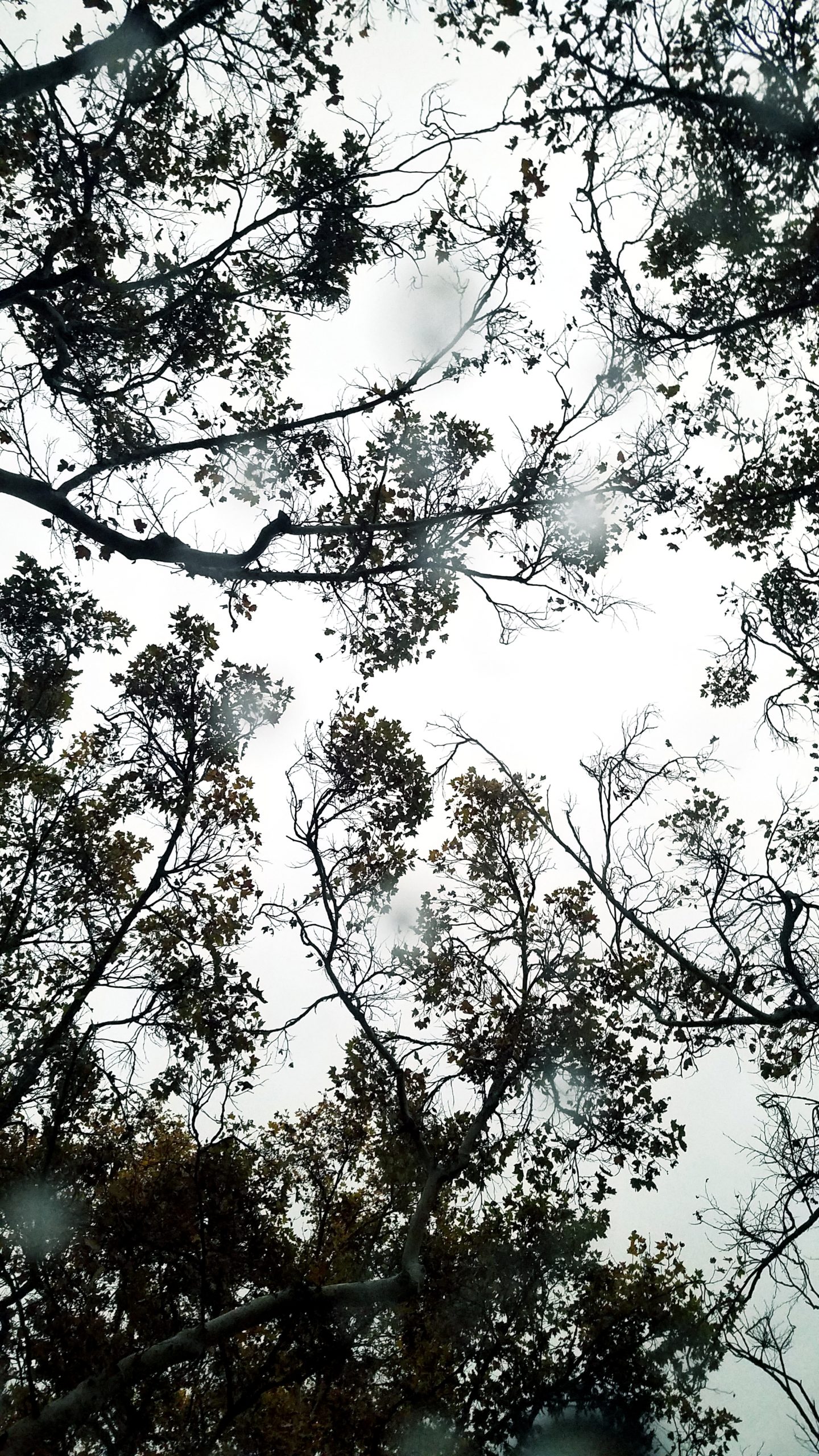Wendy Peterson – Fiction

Only the Devil can Eat the Devil Out [i]
Her loose hair snagged on thick thorns of wind that drove past her face as she ran, barefooted and swallowed in billows of cheap cotton. The fall leaves crackled at her toes, and she laughed as she disturbed a gunshot of crows that abandoned their study of some carcass as she barreled past.
“Seawell. Seawell!” She charged through the open stable door and stopped, panting, before a barrow of hay.
Seawell stopped loading the cart and skewered the dirt floor with the pitchfork’s prongs. He grinned at her dishevelment.
“Come take a break.” She moved around the cart and grabbed his hand from the handle of the pitchfork which remained in a stance of firm resolve in the dirt.
“You know I can’t.”
“Yes, you can—come run with me.”
“Constance…”
“Seawell—to the bluffs and back.”
“In this gray weather?”
“Please, Seawell, or I’ll leave you behind, and you’ll never get your books back.”
He tightened his fingers around hers and gripped her arm with his other hand. “That doesn’t work. I have all the stories right here in my head.” He pulled her closer to him.
Constance sniffed a laugh up her nose. “They’re my hostages then.” She jerked her hand from his and slipped away from him, sprinting back out through the door, Seawell at her heels.
# # #
He caught her by the waist as she toppled on the cut of the cliff that overlooked the waves—gray foam crushing against the sheer face of dreary stone.
“Constance!”
“I’ll fly, Seawell. I’ll fly.” She chuckled as she spun around in his arms, grasping his neck with her clammy hands, moving his forehead into contact with her own. She was smiling impossibly. “Do you smell that? The salt-breeze brines my soul.”
“You’re so giddy.” He squeezed her waist for emphasis. “Come back to me.”
“I’m refreshed.” She leaned into him. “And I’m right here.” She kissed him tenderly on each cheek and took up his hands from her waist, squeezing each. “I hate all the household-usuals. Duties.” She swallowed the word back into her throat as if trying to recall some power over the absolute way it seemed to clod from her tongue. “My heart gets so restless sometimes. I just want to outrun it all. It starts here in my joints.” She shoved an ankle from under the hem of her dress and shook it for him to see. “And then—and then my heart flies my chest, and I feel it always five feet ahead of me, out of breath, but never to be caught up to. I chase it. I chase it. But it can’t be caught. It deer-skips ahead of me, and I’m tugged along by its skitters. Why can’t I catch onto my heart, Seawell? Why does it run out before me?” Constance sighed. She moved to let go of his hands, but he held tight to their loosening.
“They’re talking about you again.”
“I don’t care.”
“They’re making gossip about what you do when you stroll out into the moonlight, humming odd tunes under windowsills and passing out into the woods and not coming back till dawn.”
“Oh, well, you know…” She laughed and bent her head towards him, whispering out conspiratorially. “Just what all miscreant, wayward girls do…”
“Constance, I’m serious.”
The smile receded from her face, and she pulled her head back to its proper place on the perch of her neck. “Ms. Jenson hissed at me the other day when I was hanging laundry out to dry. When I picked up the empty basket to head inside, she whispered styx under her breath.” Constance stood, hugging her arms around herself, picking at a clump of unruly grass with her toe. “They hate me because I’m different.”
“They don’t understand—”
“How my heart is always stumbling on five feet ahead of me. Seawell!” She threw her arms out in exasperation. “But I don’t care, Seawell! I love the quiet of the woods, the stillness of the trees, the shadowy nights. I love barefeet and wild things. In the dark, everything seems closer—even my heartbeat. It’s the only time the restlessness stops—” Constance stopped to look up at Seawell. He was studying her frown-lines. She smiled self-consciously and shook his concern away. “Besides, I’ll tie my hair up for no one and go tromping along all I want.” She skipped a few paces off, laughing.
Seawell called after her. “But the propriety—”
Constance pivoted and made her way back to him. She touched his shoulder. He wouldn’t look at her, so she took up his hands. “Do you like propriety, Seawell?” Constance’s eyes intercepted his as he searched the ground for tidy ways to say things.
“No, but—”
“Then don’t wish it on me.” She threw up his hands and spun around and around herself until she aimed her body toward the distant treeline at the end of the field they had crossed to get to the cliff, and she bolted into the crisp skeletons of wildflowers dead on their stalks.
She would make it back to the village before him. He decided, against his heart, to walk. She confounded him. And she disappeared like a half-thought idea into the largeness of the late morning’s mind.
# # #
“Constance you shouldn’t spend any more time with him.”
Constance lifted her head from over the laundry boiling in a cast iron pot on the hearth. She had been stirring it so none of the linen would scorch, but at her father’s request the ladle stopped its watery musings, and her hand stopped chasing the handle in circles. “But, Father…”
“Perhaps you haven’t heard, but Mister Bryn is seeking out prospects for him. He wants to marry him well. To a proper town daughter.”
“One with money, you mean.”
“Constance.”
“One with trim looks and dainty airs.”
“Constance, I only meant…”
“One who will sit at home and make babies for him, all birthmarked with the last name. Bryn, Bryn, Bryn…”
“Our social standing—”
“Is irrelevant. Is a bunch of judgment spelled out in official looking expectations by people who found themselves with more power than they knew what to do with and no intention to give it up. And it’s fine, I don’t want him.” Constance turned back to the boiling water in the pot. “Marry him to the first full purse.”
“What has he been putting you up to now? What book does he have you reading?”
Constance’s eyes snapped back to her father’s face. “He doesn’t have me reading anything. If I’m reading, it’s because I want to. I should’ve shoved him off the cliff when I had the chance, and then the old wives’ tongues would’ve had something really ripe to flap about and none of it would’ve reached him. The salt would’ve stoppered his hearing of it.”
“All you have to do is stay away from him for a while. Just stay away—”
“I can’t.” Constance shook her head. “I won’t.”
“For a while. Not forever.”
“He’s my closest friend.”
“Then that’s your mistake.”
“Excuse me?”
“Stay away from him.”
“You won’t make me.”
“I can. Propriety says—”
“You can’t.”
Constance flung the ladle against the cast iron pot and a hollow echo and the slosh of dirtied water followed her like footsteps out of the room. She slammed the front door behind her. When her father opened it to search after her, he was only met with an accusation of trees—all straight-spined and unwilling to move out of his sightline. He wouldn’t find her standing at the threshold. He wouldn’t chase her either.
# # #
Seawell awoke at the clacking of the stable door in the wind as it hit against the outer wall of the stable. He shifted in bed and listened to the outside noises creak through the walls. He was conscious of the disturbance, knowing how routine it was of him to secure the bolt at night only to find it tight-lipped in the morning. But this broke nightly custom. Sliding out of bed and into breeches, he tucked his night shirt in as he went, with all intention, to shut the door from the prattle of the wind. Outside, the night was crisp. He could feel that crispness shoot like a ribcage through the air—all that nearing-winter cold that hesitated in autumn.
Arriving at the stable, he took up the edge of the wooden door in his hands and walked it forward in groggy slowness. The wind wedged itself between door and door frame, resisting closure.
Before managing the door shut, he heard, between muffled sobs, her gasp for breath.
“Constance.” Seawell let the wind fling the door from his hands. It smacked against the side of the building, and Seawell moved forward in the dark, taking her into him. He held the pulse of her tears against his chest. “What did they say, Constance? What did they say?”
He rested his cheek on her head—the hair roughing the dreamspot of his cheekbone. Tired, he closed his eyes and waited for her breathing to ease.
Her hands clutched at his shirt.
“Propriety, Seawell. Propriety.”
# # #
“This is inexcusable.”
They awoke to Mr. Bryn’s shout.
He stooped in the door looking down at them.
They had fallen asleep on the haystack—Seawell’s arms wrapped around her, and Constance leaning into his chest. Nothing had happened, except a tear’s worth of exhaustion and an unwillingness of the body to move from where it reclined so easily in familiar arms.
Mr. Bryn strode forward and, grasping Constance by the wrist, ripped her to her feet. Seawell watched him drag her toward the door. Shock calcified his bones—he couldn’t move.
“Who else have you been visiting at night, you whore?”
“Mr. Bryn, please—it was a misunderstanding.”
“A misunderstanding, indeed. You shouldn’t have taken the time to understand each other at all. Great-god-in-heaven, I’ll see you burn straight through for this. A proper drowning is what you need. Bewitching my son in your heathen hours—”
Constance glared at him, gritting her teeth. “Apparently. And your daughters too.”
“What? What did you say? Speak up.” He grabbed her closer, screaming into her face.
Constance winced. “Mr. Bryn…”
“Father, please!” Seawell had struggled to his feet and was at his father’s elbow.
His father shoved him back while twisting Constance’s arm with his other hand. He scoffed at Seawell. “Let’s hope you’re clean of any misconduct. And don’t you dare speak for her—to the gutters with her where she can find some kin with all things creeping and unnerving. To brimstone and putrid eternity with her. My son in the arms of a witch.” Mr. Bryn turned and spit at Constance’s feet. The saliva corroded at her bare toes.
“Mr. Bryn. Sir…”
“Silence.” He shook her till her skull rattled furiously on her neck.
“We’ve known each other since childhood, Father. You’ve seen us grow up.”
“To my own misfortune. And I’ve heard rumors of this one’s growing up. People have watched you—vermin. Don’t doubt that.”
“Father—”
“To work with you for lashing your tongue out—”
“Seawell—”
“Quiet.”
“—propriety is a demon thing.”
“And to hell with you.” Mr. Bryn shoved Constance before him, out of the stable and toward the center of town.
# # #
Mr. Bryn had wrapped his fingers into her hair like they were the reins on a particularly stubborn horse and dragged her forward by the strands he held in his fist.
Her skull was in the same burning way as when you scalp a blister from your skin—the inside of a tender wrist that rested too long on the scorch of cauldron and peeled itself away in feeble guilt. The flesh betrayal. Every root of her hair felt attached to her brain, and she was sure if he pulled any harder all her thoughts would escape in one last strain, one last exhaust of consciousness, and she would go limp at the legs. Her body would skim the ground like a sack of grain, and he wouldn’t realize her dead weight. He would just keep tugging to the shame of her corpse ripped to shreds by the wood-floor and the pine-spokes in the graveled dirt.
“Come, see! Come, see! The viper that’s slipping into all your haybales and spitting vile things into your young men’s eyes. See the way she slithers.” He shook her, thoroughly, by the hair as she slid to the agony of her knees. He moved forward, despite her body’s protest—dragging her as she struggled back to her feet.
A scant crowd of villagers surfaced at the call, circling around the clearing in the buildings and the trees that served as the center of town.
Women clutched children to their aprons, and men carrying their loads of work stopped in mid-grunt to listen to Mr. Bryn accuse Constance of vile deeds she herself had no knowledge of.
Mr. Bryn stopped and forced her to her hands and shins. “Does anyone else have evidence of her black sorcery? I wish to know what other souls this witch has contaminated—which bodies have been violated.”
Constance noticed her father in the crowd. She watched him waver and drown behind the blur in her eyes. Her tears ripped out of her skull in sheer pain.
She watched Ms. Jenson, holding an infant grandchild, slide to the front of the crowd like a fish just caught and let into a pail of water to wait for the trial of its life to begin, and watched Seawell, in his nightshirt and breeches, trying to shove his way to Mr. Bryn, and stillness. She noticed the stillness.
Stillness as Ms. Jenson let loose tongues of ire: “See the welts she summoned on my grandchild as he slept? See the marks of devilry on an innocent’s skin? Who knows what hex she hums under windowsills, what disease she brews into the linen she pretends to keep clean?” The lady spat at Constance, and the spit corroded at her knees.
Mr. Bryn twisted her hair, viciously, in his fist.
“Please, please.” Constance sobbed out in agony. “Bedsores. Bedsores.”
Seawell, listening, picked up her strain and pushed through the shoulders of men and women blocking his way. “The child has bedsores. Just bedsores. Like our elderly women get when they’ve been confined too long to their beds and can’t get rid of them for lack of movement.”
Mr. Bryn shoved Constance, face-first, into the dirt, and charged at his son, grabbing him by the collar. “You will hold your tongue.”
“I will not.”
Constance could taste the dirt on her lips when the slap tore through her consciousness. Looking up from where she lay, she watched as Seawell lifted his palm to the skin-burn of his cheek. He was sunk, by the hit, to his knees.
Mr. Bryn, shaking the contact from his hand, trying to rid the touch of his first-born’s screaming flesh from his palm, turned to the gathered town. “All those in favor of an immediate inquisition, say aye.”
A dabble of ayes and Constance watched her heart flop in the dirt five feet before her.
Mr. Bryn strode to wear she lay prostrate beneath the throbbing of her skull and, once again, grabbed her by the hair, lifting her face inches from the ground and hissed silently in her ear. “Nowhere to run.”
His fingers slid from her hair, and her cheekbone smacked the ground.
She could not retrieve her heartbeat for all its floundering and gasping five feet ahead of her.
# # #
Questions asked and judgment passed and Constance sat tied up in a dark room. They had left her on the floor—her legs bound with thick rope, hands behind her back, and a slab of wood wedged under her elbows in a rigid lash across her spine.
The night had come on too fast, and the villagers agreed to a morning death. Her father’s small mercy to suggest a delay, and her mother’s grim, unreadable face.
Constance sensed the night tugging at the door by slipping silhouettes of fingers under the crack and teasing it forward. The door shuddered in its tracks, and Constance shivered in horror at the body bound and the heart racing out, racing out, ramming its head against the closed door, and for all that agitation, her limbs bound up and tangled in neat restriction. She felt her mind sob, felt the old restlessness fury through her empty chest.
Rolling to one side, she felt the wooden slab under her arm shift.
With pain burdened to her back, she breathed and sat up. Her ankles were bound, and she shuffled her body across the floor, pushing along the floorboards with the oars of her feet until she made it to the edge of the room. Positioning herself so one end of the wooden slab was flush against the wall, she slid her arms, her back, toward the end of the slab as it pushed against the wall.
One elbow slipped over the end of the plank and freed itself. The wooden slab clattered to the floor as her other arm shook it free from the squeeze against its skin.
Of all the patience toward her duties, the patience to untwine a knot around her wrists with her fingers bending in ungodly ways was the most agitating. Her skin prickled with the task. It could not be done quickly.
She tugged and nipped at the rope with her fingernails. She rubbed her wrists against the strain, she twisted and breathed fast and angered at the slowness of it, and when the rope was loose, she watched her heart slip under the door—out into shadows.
She rid her legs of the rope bound around her ankles and her thighs.
She stood up.
Avoiding the locked door and opening a window, Constance crawled out into the night and ran, panting, after her heart into thickets of shade. Bark howled under the touch of her trembling fingers as she groped into the woods.
Constance was aware of the pounding of feet approaching from behind her.
She had been seen.
There was a watch, a guard, left on the building.
She didn’t know.
And she could hear so clearly the footfalls of her pursuer—for the stillness in her own chest, as her heart went in caterwaul ahead of her, left room for all the noise chasing up behind her.
A look over her shoulder and a cloaked figure was gaining on her, barely visible for being confused with the shades.
Her legs refused the run.
And the villager who had followed her into the woods made a jump for her and silently wrestled her, face-first, to the ground.
In turning over, her hands moving to push him off, Constance discovered, in a touch, the hunting knife the man had tucked within his belt.
The man was struggling to force her to be still, his hands trying to pin her shoulders to the ground, but her hands were free, and, grasping the handle, she withdrew it from his waist and let the blade sink into his gut, hilt-deep and bloodied—she felt the gush at her fingers and released the handle.
The man fell back with a muffled grunt and softened into silence—a struggle for breath. “Damn it, Constance.”
“Seawell.” Constance leaned over him and pushed his hood back. “No—Seawell…” She touched the handle of the blade sheathed in his stomach.
He writhed at the indirect touch. The lightness of her fingers increasing the weight of death in his gut.
“No. Seawell—” Cradling his neck in her shaking hands, she left a thumbprint of his blood at the turning of his throat, and his voice went red.
“Why did I try to stop you?”
Blood gutters slowly into mud—she pulled the knife from his gut and crouched over him.
He breathed weakly.
She pressed her hand into his gut to catch the wound’s weeping.
Constance shook her head. “Come back to me. Please—”
Seawell’s laugh sputtered. Gurgled. “I’m right here.”
He took up her hand from his stomach and kissed her fingers, the taste of his own blood saturating the break between his lips.
Hounds barked from the village. At the treeline, torches flickered. Between the skeletal anatomy of the trees, voices pounded—an internal organ of anger, one red thrust after another. A threat of discovery.
“Seawell! Seawell—”
“Run.”
She pulled her stare away from the approaching torches and looked into his eyes. A drop of clear pain squeezed from his gaze. Constance wiped the tear from his cheek, and his eyes closed gently upon her near touch. “I’ll fly.”
“Run.”
Constance shook violently as she ached onto her feet and took off at a run.
Torch light followed like dawn at the heels of her peace. Constance’s heart: five feet, ten feet, twenty…
She broke through the clearing of the trees. Her feet smothering stalks of dried wildflowers. She ran toward the sever of land—the trees whispered angry behind her, the dead fields chattered against her feet. With the skin on her fingers stiff in solidifying blood, she hurtled toward the cliff, toward the gray water, foaming—her heart a mile above anything.
It was the edge, and it crumbled under her feet.
And she toppled into the stoppering sea—surrounded by pulse. Deaf in its scream.
[i] Title is a line borrowed from the sixth section, “Witch Burning,” of Sylvia Plath’s poem, “Poem for a Birthday” (Plath, Sylvia. “6. Witch Burning.” Poem for a Birthday. 1959. ln. 5.).



